Fred Hollows' story: from his early years to his work overseas
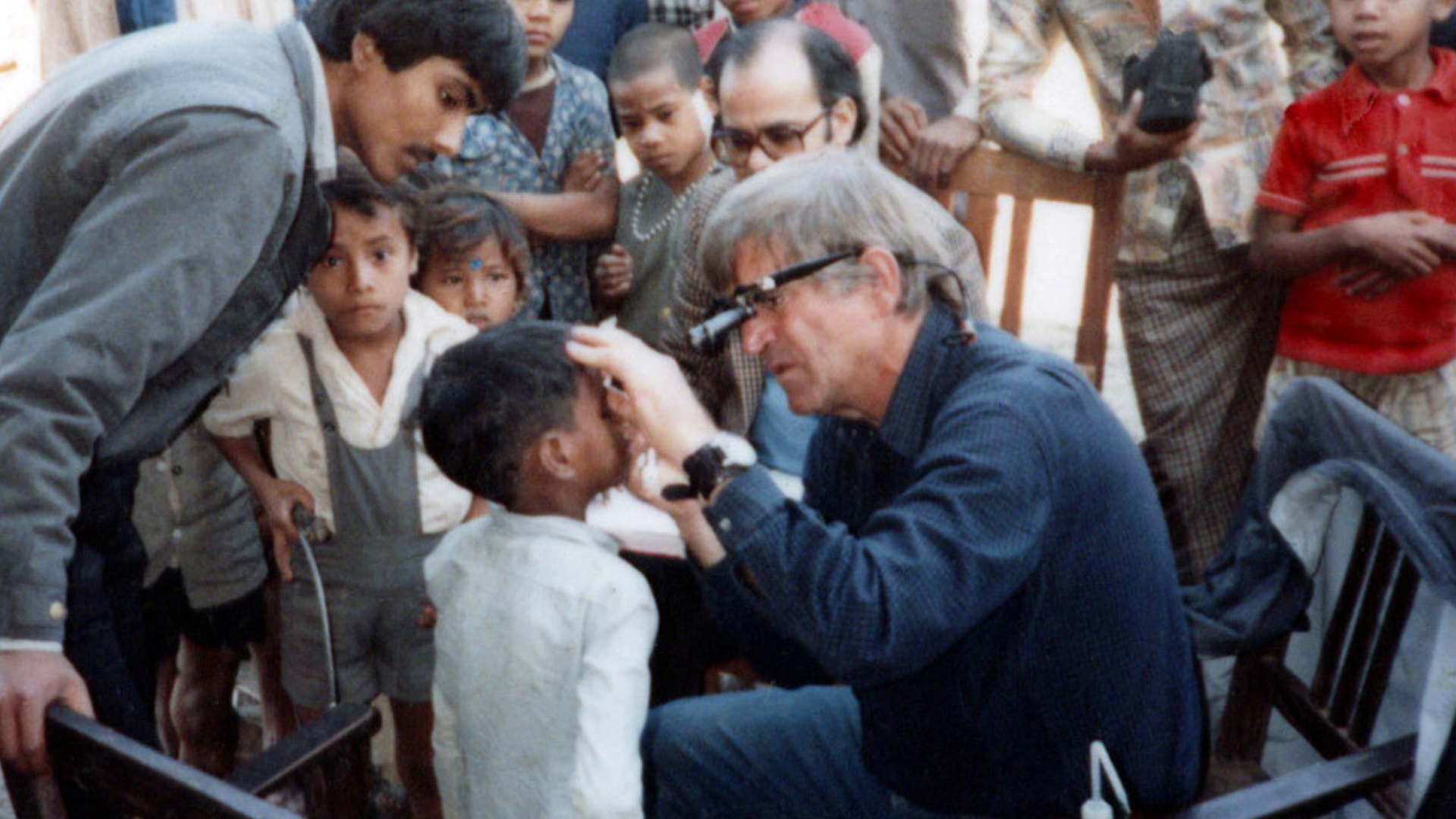
Professor Fred Hollows was a proud Australian. He was also a humanist and a global citizen, who was revered around the world for his contributions to eye health.
Fred always used to say that he didn’t study medicine to make money, he did it to help people. And not only did he help people in Australia, he worked tirelessly to give the most marginalised people in the world access to high quality eye care.
In a hurry?
Click on the link below to go straight to the topic you’re interested in the most:
Fred - a Kiwi kid
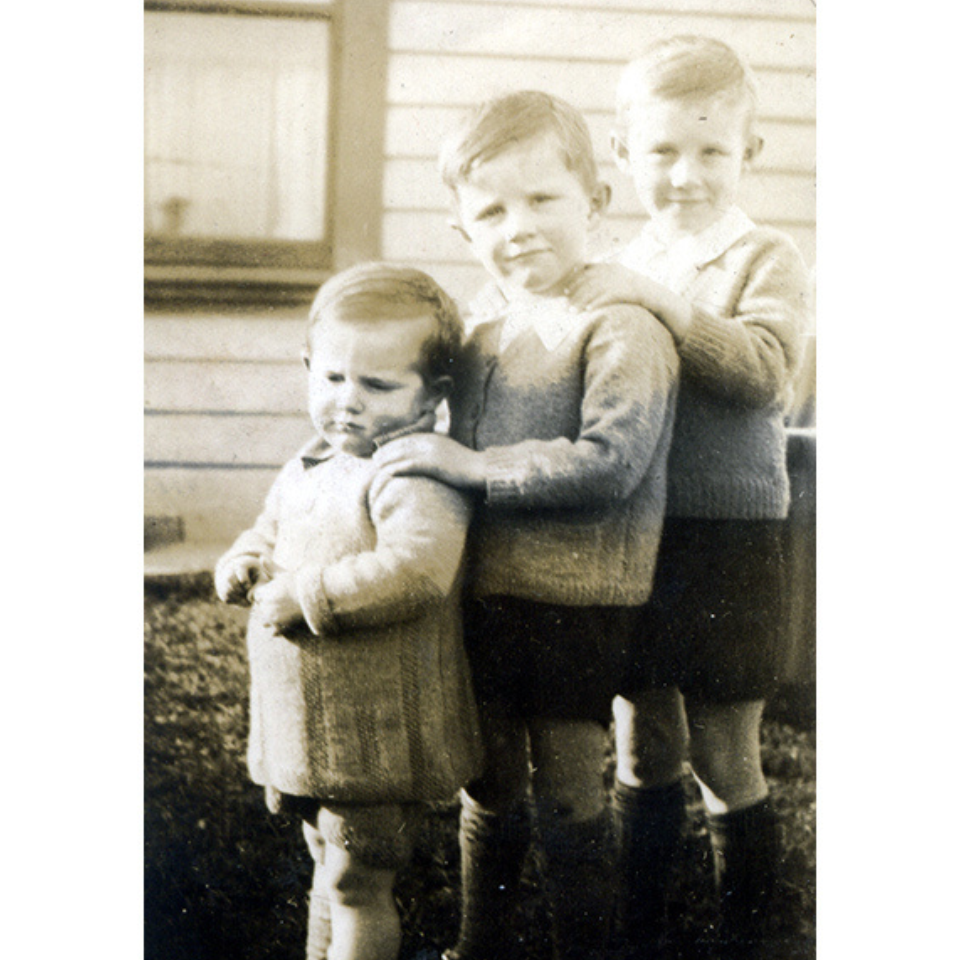
Photo credit: The Hollows Family
Fred Hollows was born in New Zealand on 9 April 1929 to Joseph Alfred Hollows and Clarice Sylvia (Marshall) Hollows. Fred had one elder brother and two younger brothers. The family lived in Dunedin for the first seven years of Fred’s life before relocating to Palmerston North.
Fred led an active lifestyle as a young boy with his brothers. He was also a front-row forward in his local rugby team, and he had a love for nature, bushland, and mountain-climbing.
From an early age, Fred was studious and an excellent scholar. Fred’s family were dutiful members of the Church of Christ and Fred even completed one year of divinity studies at university. Even though Fred was considered an atheist later in life, you may see how his formative years contributed towards his humanitarian nature.
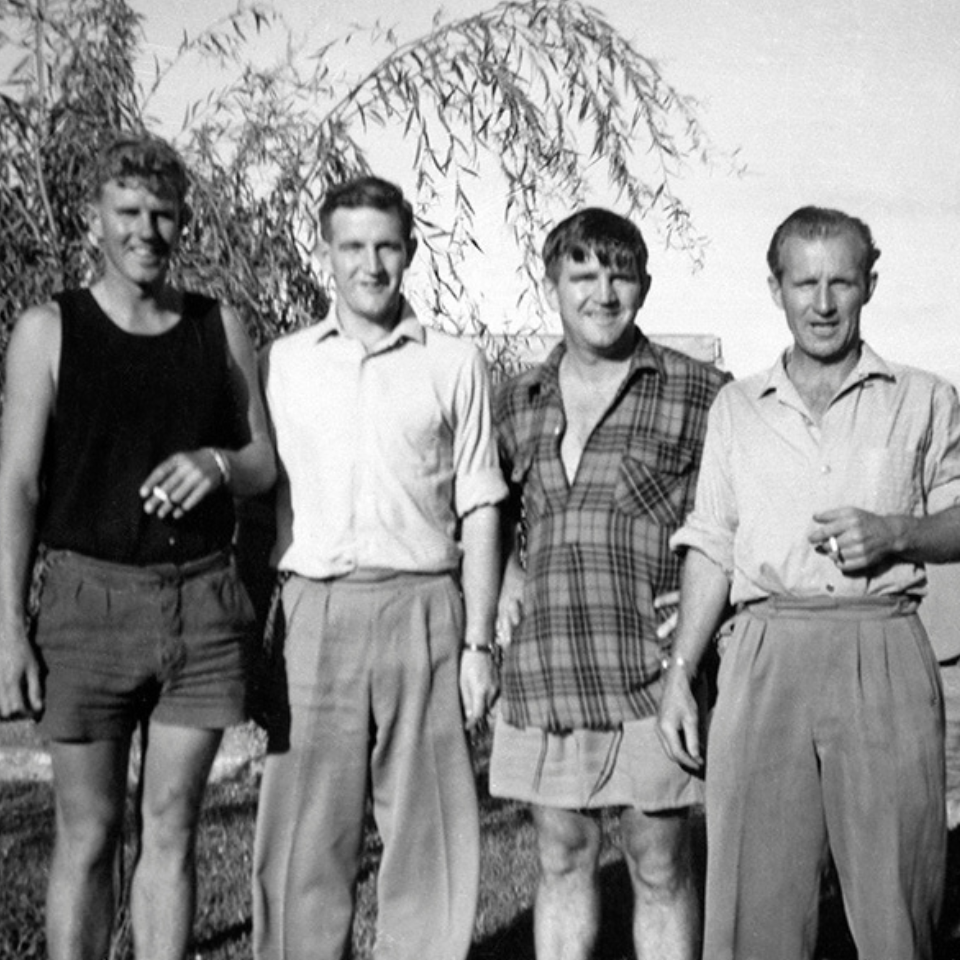
Photo credit: The Hollows Family
Fred was heavily influenced by his father in his world views. Encouraged by his dad to pursue social activism in his late teens and early twenties, he became a member of the communist party of New Zealand (left-wing).
“If you had asked me as a 20-year-old what my accomplishments would be, I would never in my wildest dreams have envisaged all this.”
- Fred Hollows
Fred grew interested in medicine when he spent a summer working in a Mental Health Hospital in Porirua, which led him to forgo divinity studies at the University of New Zealand in Otago in favour of an Arts degree at the University of New Zealand in Victoria.
Fred returned to Otago as a medical student and became interested in the branch of ophthalmology as a hospital resident: first in Auckland; then Tauranga; and later in Wellington.
Fred - an international student
In 1961 Fred travelled to England to study at the University College London Institute of Ophthalmology (Moorfields Eye Hospital) and became an ophthalmic registrar.
He joined the medical research council in the epidemiological unit in Cardiff and carried out pioneering research into epidemiology of glaucoma in mining towns, which saw him inducted as a fellow of the Royal College of Surgeons in 1964.
“I never did medicine to make a lot of money… I studied medicine so I could help others.”
- Fred Hollows
Fred - an Australian activist
After completing his ophthalmology fellowship, Fred took up a position as an associate professor of medicine at the University of New South Wales. He was also the chairman of ophthalmology at the Prince of Wales Hospital in Randwick, Sydney. It was here that Fred’s dedication to humanitarian work was ignited.
Fred’s passion for achieving eye health equity for Aboriginal and Torres Strait Islander Peoples saw him travel all around the country, visiting hundreds of remote communities. He became an activist, bringing to light the shocking disparities that existed in Australia.
“To Australia’s shame, many (Aboriginal people) live in third-world conditions inside our ring of affluence.”
- Fred Hollows
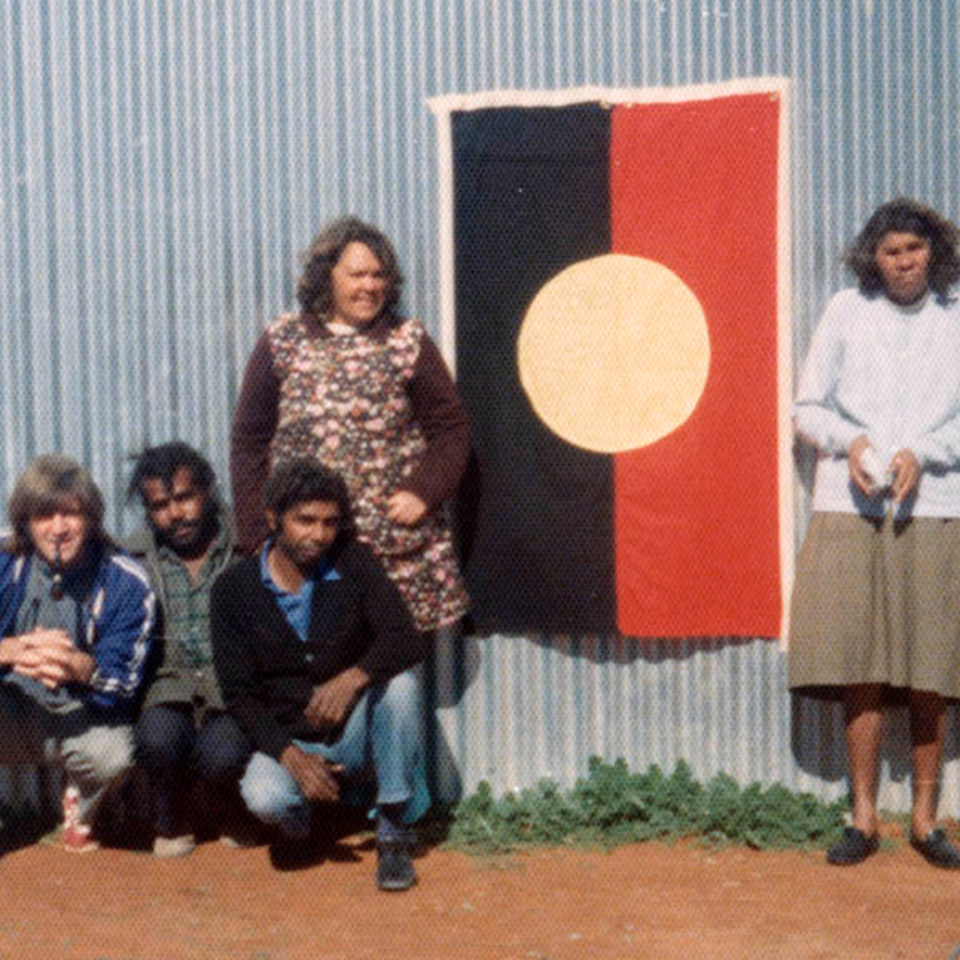
Photo credit: The Fred Hollows Foundation
Fred - a world-renowned humanitarian
During this time, Fred also developed strong ties with countries like Eritrea, Nepal, and Vietnam. This is a short summary of Fred’s work internationally. His efforts lay down the building blocks that have made The Fred Hollows Foundation a true international development agency that works in more than 25 countries around the world to restore sight.
Were it not for Fred, millions of people would be blind from avoidable causes. Our work ensures the world’s most vulnerable children, women, and men are able to access high quality eye health services so their vision problems can be treated or prevented from worsening.
In 1985 Fred visited Nepal, Burma, Sri Lanka, India and Bangladesh on behalf of the World Health Organization (WHO). And two years later, he visited Eritrea, which was war-torn at the time. He also visited Vietnam. Fred’s experiences in these countries had a huge impact on him, motivating him to find a way to reduce the cost of eye care and treatment in developing countries. It also led him to focus on the need to train and empower local people to deliver eye care services to their own communities.
“What I’d really like is to see the economic disparity between the First and the Third World done away with. And it can be.”
- Fred Hollows
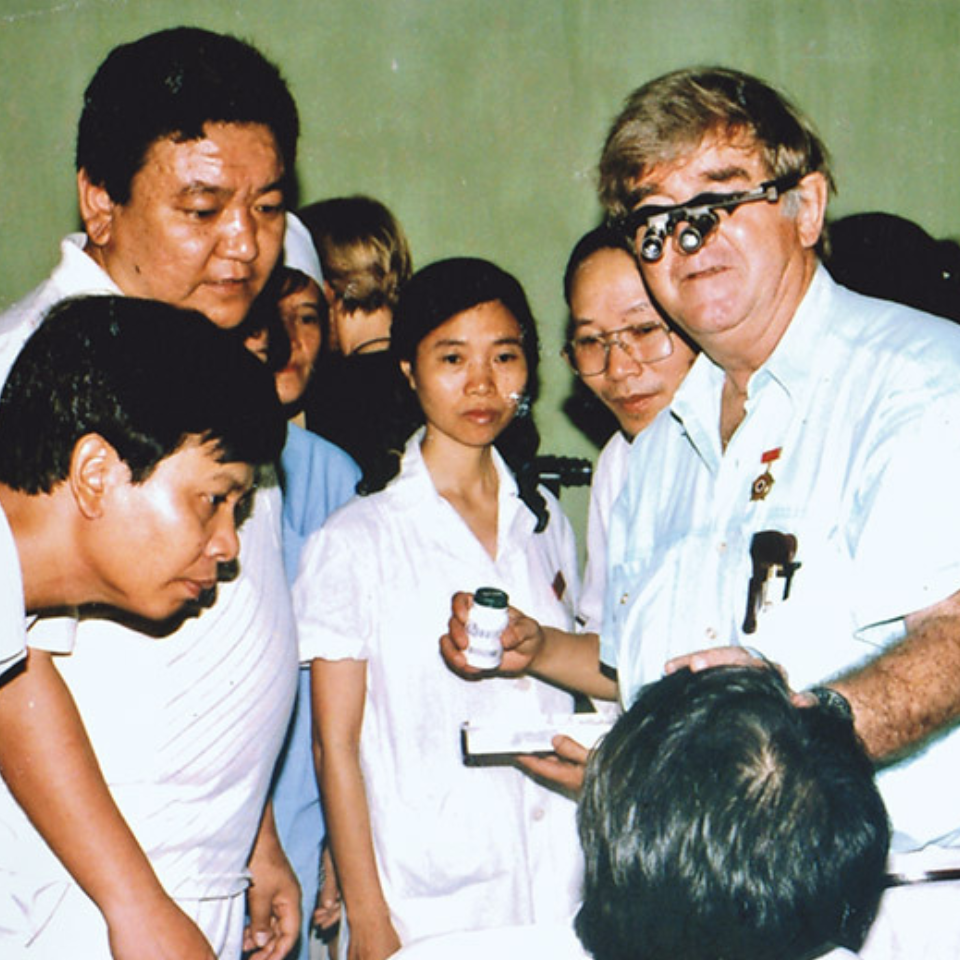
Photo credit: Michael Amendolia
What he saw in Eritrea, Nepal and Vietnam in particular led him to label them as the cataract triangle. He encountered extraordinary numbers of patients who were the risk of permanent blindness due to cataract clouding the lens of their eye. Fred was frustrated by the cost of eye surgery, which made it unaffordable for so many people to access the urgent medical care they needed.
He also saw that doctors in under-resourced countries weren’t being trained in modern cataract surgery, meaning people in developing countries had poorer outcomes simply because of where they lived.
Fred saw the need for factories to produce affordable intraocular lenses (IOLs) in these countries. IOLs are used to treat cataract, and he knew that to provide affordable eye care in developing countries it was necessary to significantly cut the cost of production.
He sought to empower local communities by founding lens factories in Nepal and Eritrea. The lenses were expensive when made in the United States or Australia, but cheap and accessible when made locally.
It saw the cost of the tiny plastic lenses fall from more than $150AUD to less than $5AUD. Today, these factories have produced millions of lenses and are a continuing reminder of Fred’s enduring impact. Lens factories now exist in many countries around the world, transforming the access to cataract surgery for millions of people every year.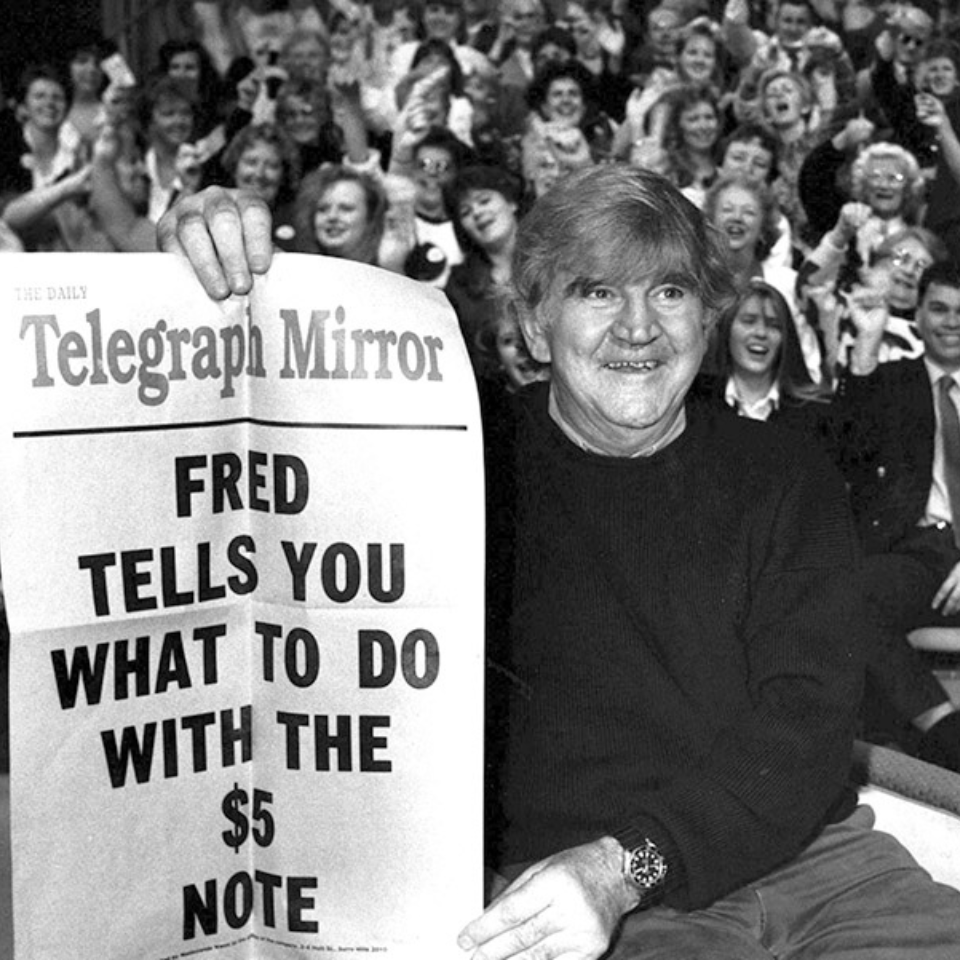
Photo credit: Scott Campbell
The factories Fred established produced world-class IOLs and have allowed millions of people in under-resourced countries and marginalised communities to access high quality eye care.
Do you have a Fred story you'd like to share with us?
Many of our supporters have shared stories of them experiencing a Fred moment while overseas. Some say their taxi driver refused to take payment simply because they were Fred’s fellow countrymen, and some say they walked down streets named after Fred Hollows in faraway countries like Eritrea. Do you have a memory of Fred? Get in touch and share your memory on our Facebook, Instagram or X pages.
Related articles
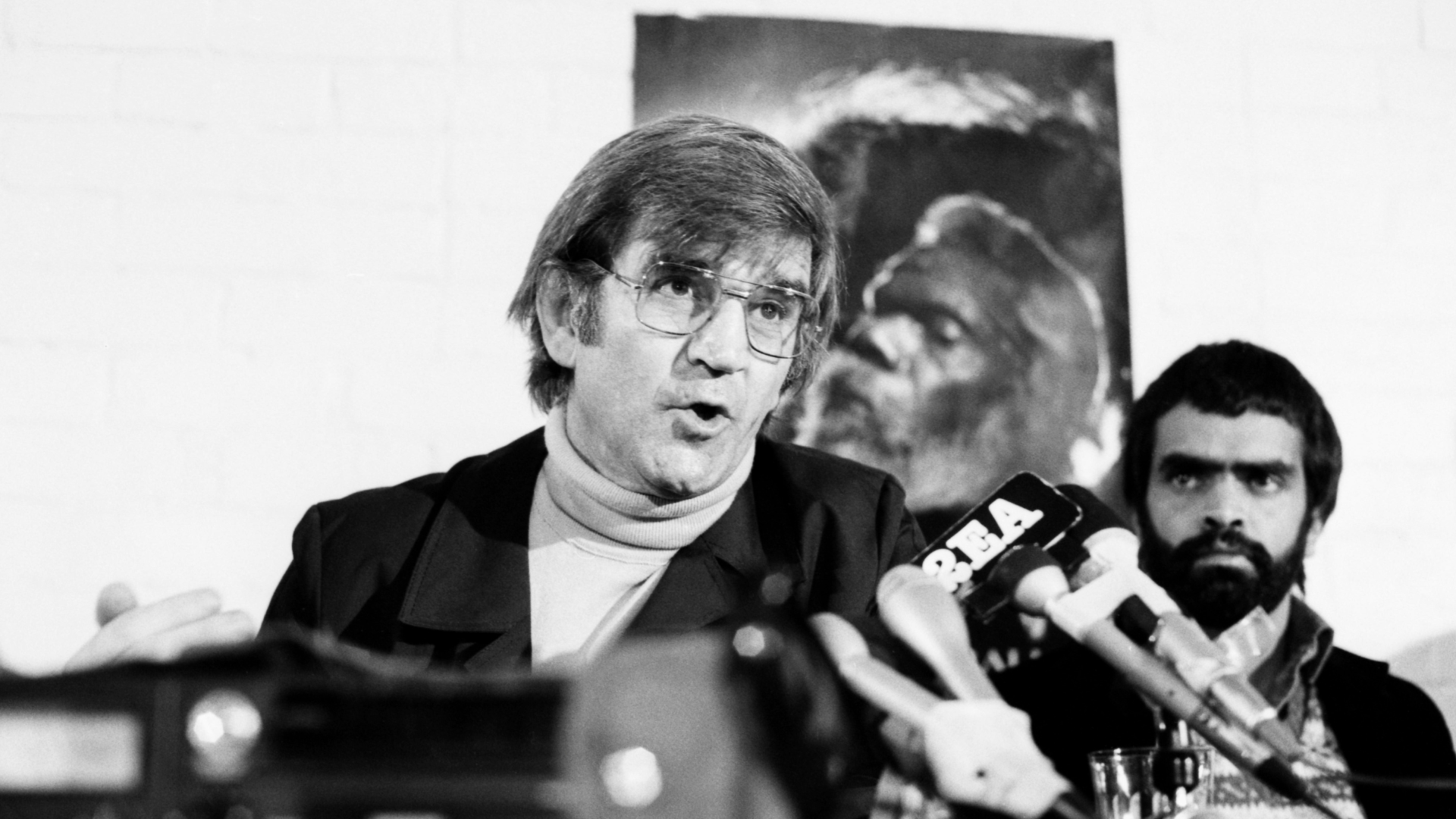
15 of Fred's most inspiring quotes
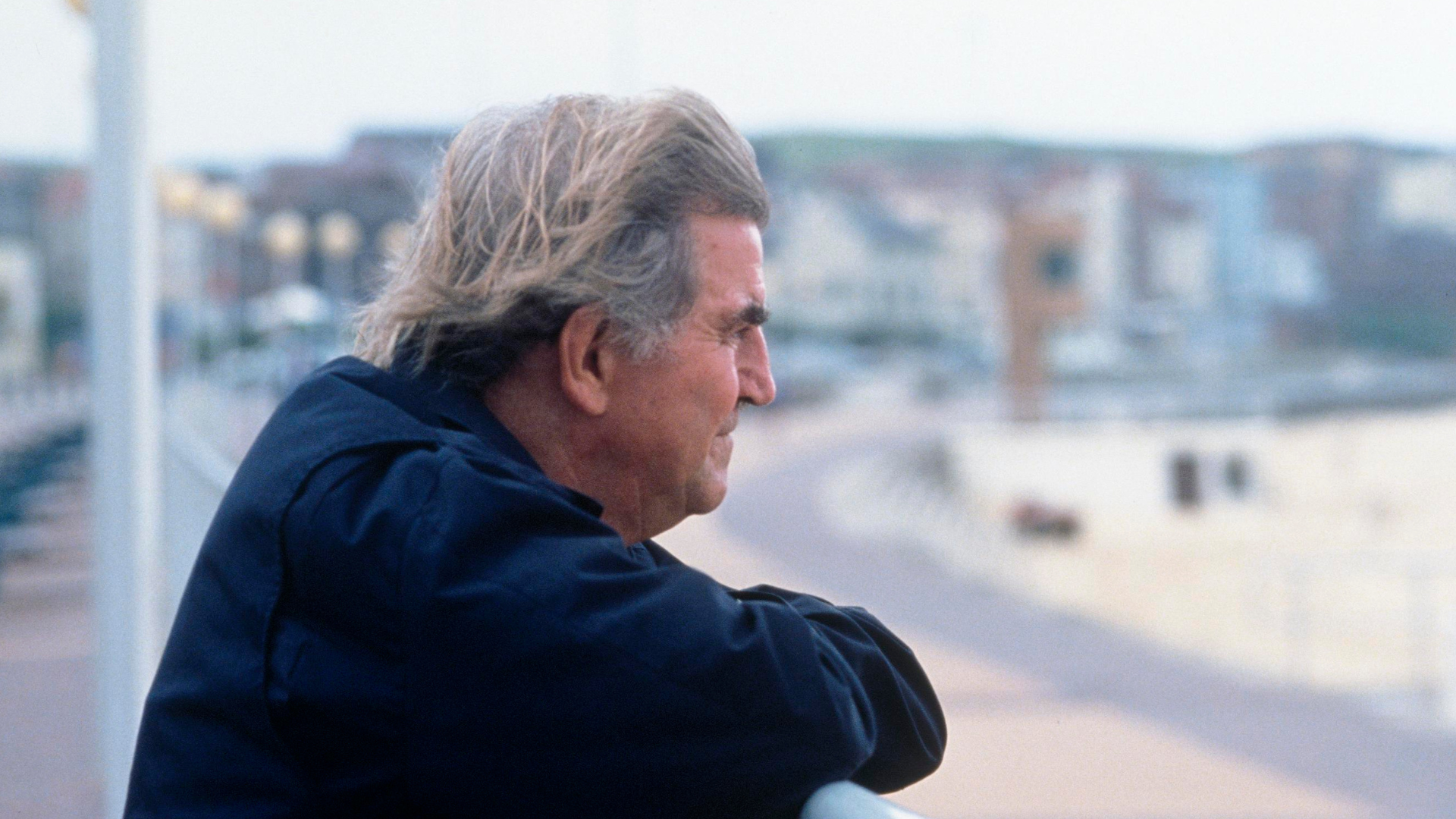
Fred's Final Years

